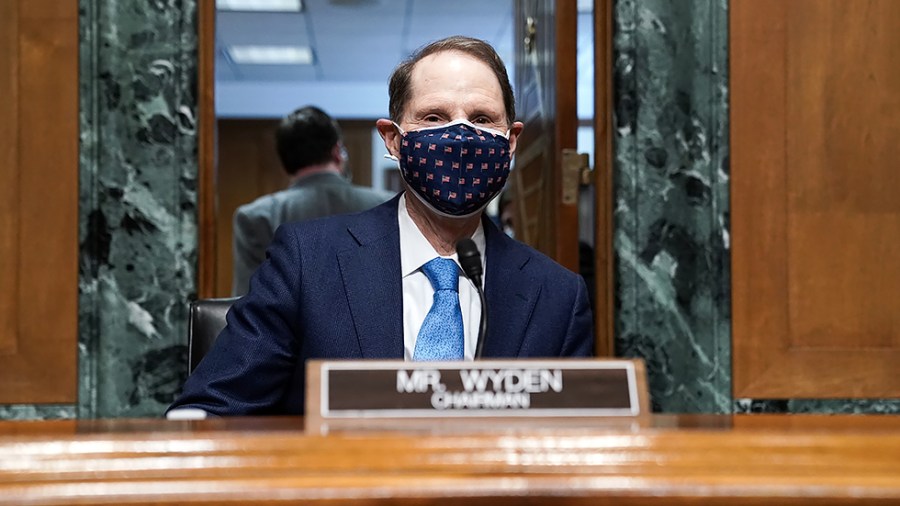Senate Democrats introduced legislation Wednesday that would overhaul “overly complex” energy tax incentives to encourage clean energy development.
The Clean Energy for America Act, sponsored by Senate Finance Committee Chairman Ron Wyden (D-Ore.), would add tax credits for clean electricity production for both fossil fuels and renewables if the facilities in question are carbon-neutral or carbon-negative. It would also make grid improvements such as high-capacity transmission lines eligible for the full-value investment tax credit.
The measure would also add tax incentives for electrified transportation, including long-term credits for battery-powered and electric fuel cell-powered vehicles. Separately, it would create a tax credit for domestic manufacture of clean fuel for transportation, open to any form of fuel 25 percent cleaner than average. The bill would also eliminate current tax incentives for fossil fuels.
“Energy policy is tax policy, and the federal tax code is woefully inadequate to address our energy challenges. It’s a hodgepodge of more than 40 temporary credits that don’t effectively move us toward the goals of reducing carbon emissions and lowering electricity bills for American families. Simply extending the status quo will not get the job done,” Wyden said in a statement.
“The Clean Energy for America Act tosses those 40 temporary credits aside, replacing them with emissions-based, technology-neutral credits to turbocharge investment in clean electricity, clean transportation and energy conservation,” he added.
Separately, the bill would require that any clean energy projects receiving tax subsidies meet all federal labor and wage standards, an addition to previous versions of the bill. In its pitches for transition to renewable energy, the White House has frequently vowed to ensure workers in the fossil fuel industries are able to transition to high-paid union-backed jobs in renewables. Earlier this week, the United Mine Workers of America (UMWA) backed the Biden administration’s transition plans provided it can ensure the preservation of jobs.
“There needs to be a tremendous investment here,” UMWA President Cecil E. Roberts told The New York Times on Monday. “We always end up dealing with climate change, closing down coal mines. We never get to the second piece of it.”
